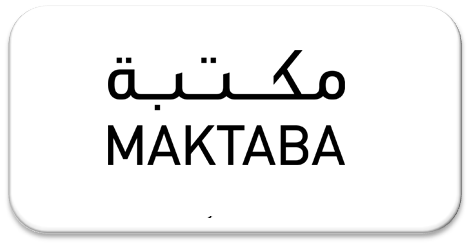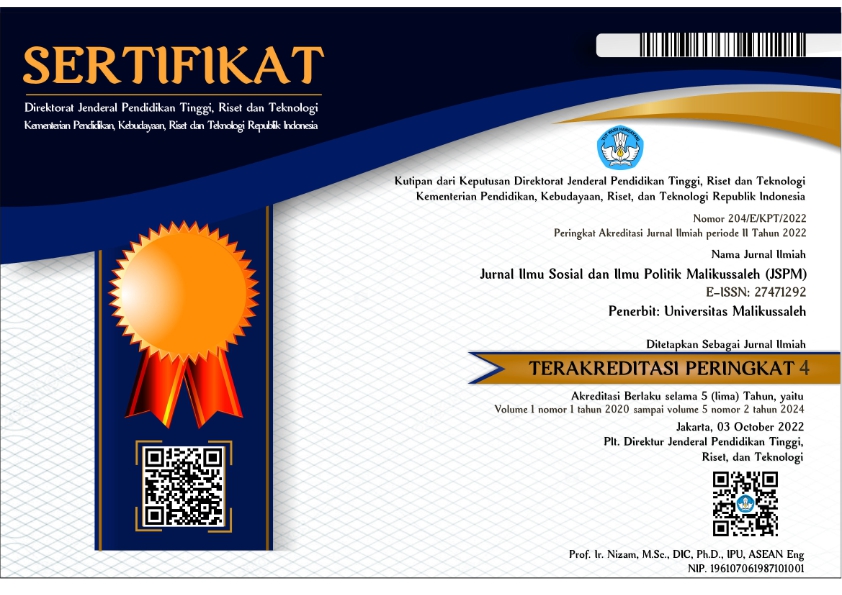The Effectiveness of a Training Program based on Erikson's Theory in Developing Independence Skills among Students with Learning Disabilities in Jordan
Abstract
This study aimed at identifying the effectiveness of a training program based on Erikson's theory in developing independence skills among students with learning disabilities in Jordan. The study population consisted of students with learning disabilities enrolled in resource rooms in public basic schools in Mafraq city for the academic year 2007/2008. The study sample consisted of sixty male and female students from the third, fourth, fifth, and sixth grades in the schools of Mafraq city, who were diagnosed by the resource room teacher as students with LDs. The sample was divided equally into two experimental and control groups. To achieve the objectives of the study, a collective training program was built, and the program included various activities and events carried out by the researcher and the resource room teacher in different ways and methods. The results of the study showed that there were statistically significant differences at (α < 0.05)) in the independence skills between the mean scores of the experimental and control groups on the post-test, and the difference was in favor of the experimental group. The results also showed no statistically significant differences at (α < 0.05)) in independence skills due to the interaction between gender and group variables on the post-test. There are statistically significant differences at (α < 0.05)) in the independence skills between the experimental and control group on the follow-up test, and the differences were in favor of the experimental group. The results were discussed in the light of the theoretical framework of the study and the results of previous studies and research in the field, then a set of educational recommendations and proposed studies were presented.
Abstrak
Penelitian ini mengidentifikasi efektivitas program pelatihan berdasarkan teori Erikson dalam mengembangkan keterampilan kemandirian di kalangan siswa dengan keterbatasan belajar di Yordania. Populasi terdiri dari siswa berkesulitan belajar yang terdaftar di sekolah dasar umum di kota Mafraq untuk tahun ajaran 2007/2008. Sampel terdiri dari enam puluh siswa laki-laki dan perempuan dari kelas tiga, empat, lima, dan enam yang didiagnosis oleh guru sebagai siswa dengan LDs. Sampel dibagi rata menjadi dua kelompok: eksperimen dan kontrol. Untuk mencapai tujuan penelitian, dibangun program pelatihan kolektif. Program tersebut mencakup berbagai kegiatan dan acara yang dilakukan oleh peneliti dan guru dengan cara dan metode yang berbeda. Hasil penelitian menunjukkan bahwa ada perbedaan yang signifikan secara statistik pada (α < 0,05) dalam keterampilan kemandirian antara nilai rata-rata kelompok eksperimen dan kelompok kontrol pada post-test, dan perbedaan itu menguntungkan kelompok eksperimen. Hasil juga menunjukkan tidak ada perbedaan yang signifikan secara statistik pada (α <0,05) dalam keterampilan kemandirian karena interaksi antara variabel gender dan kelompok pada post-test. Ada perbedaan yang signifikan secara statistik pada (α <0,05) dalam keterampilan kemandirian antara kelompok eksperimen dan kelompok kontrol pada tes tindak lanjut, dan perbedaan itu mendukung kelompok eksperimen. Hasilnya dibahas dalam kerangka teoritis studi, hasil studi sebelumnya, dan penelitian di lapangan, kemudian serangkaian rekomendasi pendidikan dan studi yang diusulkan disajikan.
Keywords
Full Text:
PDFReferences
Abu Ghazal, M. (2007). Theories of Human Development and Their Educational Applications. Amman: Dar Al-Massira for Publishing.
Abu Zaid, H. Y. (2005). The Effect of a Training Program on Developing Motivation for Academic Achievement and Academic Self-Concept for Children with Learning Disabilities (Unpublished Ph.D Thesis, Amman Arab University for Graduate Studies).
Al-Assaad, M. (1994). The Effect of Family Upbringing, Gender, and Age on Social Adjustment in Age Groups (6-12) Years (Unpublished Master's Thesis, University of Jordan).
Al-Banna, L. K. (1996). The Level of Adaptive Behavior among a Sample of Jordanian Children and Its Relationship to Gender and Age (Unpublished Master's Thesis, University of Jordan).
Al-Bustanji, M. (2002). Social Interactions of Students with Learning Disabilities with Ordinary Students in Ordinary Schools in Amman (Unpublished Master's Thesis, University of Jordan).
Al-Qudah, M. H. (2004). Psychosocial Adaptation among Students with Learning Disabilities in the City of Amman and Its Relationship to Academic Achievement, Gender, and School Type. (Unpublished Master Thesis, Amman Arab University for Graduate Studies).
Al-Rousan, F. (1999). Methods of Measurement and Diagnosis in Special Education. Amman: Dar Al-Fikr.
Al-Saaydeha, N. M. (2004). The Effectiveness of a Training Program in Developing Social Skills for Students with Learning Disabilities (Unpublished Doctoral Thesis, Amman Arab University for Graduate Studies).
Al-Zayat, F. M. (1998). Learning Disabilities: Theoretical, Diagnostic, and Therapeutic Bases. Cairo: Universities Publishing House.
Allam, S. A. (2000). Educational and Interpretive Measurement and Evaluation, Its Basics and Contemporary Directives. Cairo: Dar al-Fikr al-Arabi.
Awwad, A. A. & Sherbet, A. (2004). Social Competence and School Compatibility among Outstanding and Normal Students and Those with Learning Disabilities. Childhood Magazine, Institute of Childhood Studies, Ain Shams University.
Dyson, L. L. (2003). Children with Learning Disabilites within the Context : A Comparison with Sibling in Global Self-concept, Academic Self-perception, and Social Competence. Learning Disabilities Research and Practice, 18(1), 1-9.
Erikson, E. (1977). Toys and Reasons: Stages in the Reutilization of Experience. New York: Longman.
Hallahan, D. P., Kauffman, J. M., & Lioyd, J. W. (2007). Introduction to Learning Disabilities. Englewood Cliffs, NJ: Prentice – Hall.
Haroun, S. A. (2004). Social Acceptance Behavior of Students with Learning Disabilities and the Strategy for Improving It. Journal of the Academy of Special Education, 4.
Hassan, S. F. (1989). Fundamentals of Evolutionary Psychology. Amman: Al-Raed Scientific Library.
Kavale, K.A. & Forness, S. R. (2000). What Definition of Learning Disabilities Say and don't Say: A Critical Analysis. Journal of Learning Disabilities, 33, 217-312.
Kirk, S. A., & Chalfant, J. C. (1988). Developmental and Academic Learning Disabilities. Denver: Love Publishing.
Lerner, J. (2003). Learning Disabilities, Theories, Diagnosis and Teaching Strategies. Boston New York: Houghton Miffin Company.
Mercer, C. (1992). Student with Learning Disability. New Jersey: Prentice Hall Inc.
Merrell, K. W., & Wolfe, T. M. (1998). The Relationship of Teacher-rated Social Skills Deficits and ADHD Characteristics among Kindergarten-age Children. Psychology in the Schools, 35(2), 101-110.
Santrock, J. W. (2007). Child Development. New York: McGrow.
Smith, C. & Strick, L. (1999). Learning Disabilities: The Interaction of Learner, Task, and Setting. Boston: Little, Brown.
Thorndike, R. M., Cunningham, G. K., Thorndike, R. L., & Hagen, E. P. (1991). Measurement and Evaluation in Psychology and Education. Macmillan Publishing Co, Inc.
DOI: https://doi.org/10.29103/jspm.v2i2.4969
 Article Metrics
Article Metrics
 Abstract Views : 399 times
Abstract Views : 399 times
Refbacks
- There are currently no refbacks.
Copyright (c) 2021 Mohamad Ahmad Saleem Khasawneh

This work is licensed under a Creative Commons Attribution-ShareAlike 4.0 International License.
INDEXED BY:




.png)









Redaksi Jurnal Ilmu Sosial dan Ilmu Politik Malikussaleh (JSPM): Gedung Fakultas Ilmu Sosial dan Ilmu Politik Universitas Malikussaleh. Kampus Bukit Indah Jln. Sumatera No.8, Kec. Muara Satu Kota Lhokseumawe, Prov. Aceh, Indonesia. eMail: jspm@unimal.ac.id

This work is licensed under a Creative Commons Attribution-NonCommercial-ShareAlike 4.0 International License



.png)



